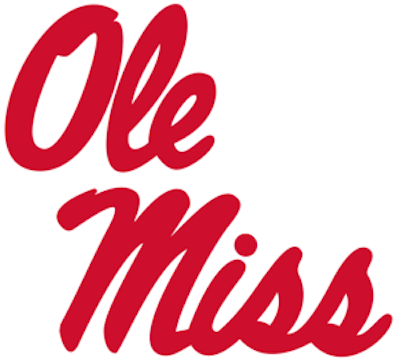
The Mississippi Supreme Court has reversed a lower court’s decision denying the NCAA's request for summary judgment after the group was sued by Barney Farrar, an assistant University of Mississippi athletics director for football for the university from 2012 to 2016.
“The record reflects that the NCAA neither denied Farrar’s due-process rights under the Mississippi Constitution nor maliciously interfered with his prospective business relations,” the court’s majority opinion states, as reported by NBC affiliate WLBT in Jackson. “Accordingly, the trial court erred by denying the NCAA’s motion for summary judgment on these grounds.”
Farrar was fired by the university in 2016 after allegations of multiple NCAA violations surfaced.
A hearing before the NCAA’s Committee on Infractions nearly a year later revealed Farrar had committed multiple violations, including arranging for boosters to make cash payments between $13,000 and $15,000 to one football recruit.
In 2020, Farrar sued the NCAA, saying he was denied a fair hearing at the tribunal, that the agency maliciously interfered with his future employment, denied him due process under the state Constitution, and usurped judicial function. In response, the NCAA filed a motion for summary judgment asking for the complaint to be tossed.
The Lafayette Circuit Court granted the request on Farrar’s claims of negligence, denial of a fair hearing, and usurpation of judicial function, but allowed the malicious interference and denial of due process allegations to remain.
As reported by WLBT's Anthony Warren, justices reversed that decision Thursday, saying there are four elements necessary to prove Farrar’s claim that the NCAA was maliciously interfering with his business relationships: the acts were intentional or willful; the acts were calculated to cause damage to the plaintiffs in their lawful business; the acts were done with the unlawful purpose of causing damage or loss; and the acts resulted in damage and loss.
The court instead found that the NCAA was following its bylaws, and that those bylaws had been adopted by member institutions, like the University of Mississippi.
“The NCAA did not engage in intentional and willful acts calculated to cause damage to Farrar... Rather, the NCAA’s members adopted, and the COI enforced the bylaws in furtherance of the NCAA’s mission to ‘uphold [the] integrity and fair play among the NCAA membership and to prescribe appropriate and fair penalties if violations occur,’” the court wrote.
The COI is the NCAA’s Committee on Infractions. After the allegations of misconduct arose, the committee held a two-day infractions hearing.
The board eventually concluded Farrar had “committed multiple Level I violations” and imposed a “five-year show-cause condition to member institutions” interested in hiring Farrar for a recruiting position.
Despite this, justices say Farrar provided no evidence NCAA officials acted with malice, and that he ultimately admitted to the violations he had previously denied.
“Notably, Farrar does not dispute that he violated NCAA rules while he was employed at the University of Mississippi, nor does he dispute that the COI followed the NCAA’s bylaws in connection with its enforcement proceedings... Instead, Farrar claims that the NCAA’s enforcement processes are ‘absurd and unfair.’”
Farrar is currently the co-defensive coordinator for Holmes Community College.





































